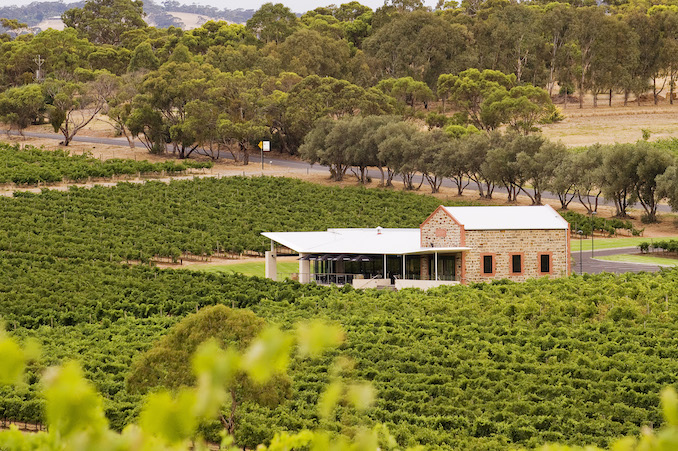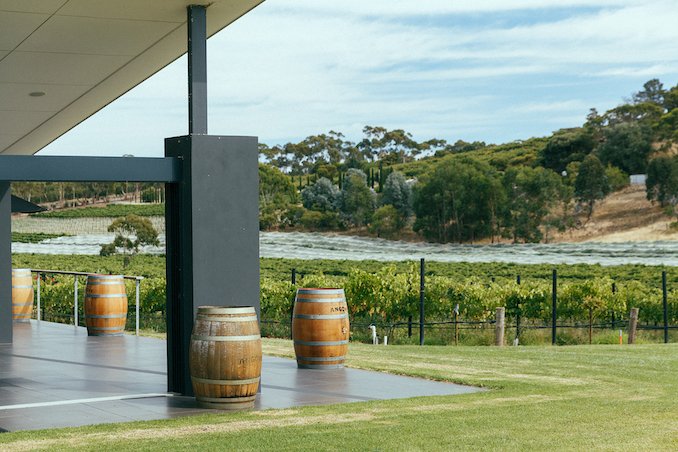A visit to your local wine store can be confusing, with so many brands, blends and varieties to choose from. Add in the growing range of organic, vegan, natural and biodynamic labels, and it can be difficult to know where to start. Perhaps that’s why 80% of people tend to choose a bottle with the most attractive label, regardless of its origin or blend[i].
Victoria Angove, Joint Managing Director of Angove Family Winemakers and 5th generation winemaker, is the go-to expert on the differences between these designations and what the word on your wine label really means. “With so many people concerned about their individual health and the health of our planet, I’m not surprised that more than 65 percent of Australian’s are choosing to purchase certified organic products in a bid to live healthier lives and use products that do less harm the environment[ii],” says Victoria.

This growth in organic wines reflects society’s overall move towards a more sustainable lifestyle. People are now choosing wine to reflect their changing lifestyle tastes and goals to complement the more natural and organic foods they eat. Research shows that a daily glass of wine has benefits for our health, [iii] [iv] and with the substantial rise in organic wine sales in the last year (up by 50%), it’s time to get the lowdown on the best certified organic, vegan, natural or biodynamic wines to complement your healthy and sustainable lifestyle.[v]
The difference between Organic, Vegan, Natural and Biodynamic
“Increasingly, amongst the millennials, and broader consumers, people are wanting to know about provenance – where their food and beverages have come from and how they have been grown, made or sourced,” says Victoria Angove from Angove Family Winemakers, Australia’s leading and largest Certified Organic winery.
Organic wine: Certified Organic wines are made from grapes which have been grown without the use of artificial or synthetic chemicals, such as herbicides, fungicides and pesticides.
“Certified Organic vineyards need to go through a rigorous three-year accreditation process, prior to the grapes being made into Organic wine. The winery also needs to be certified,” says Angove, “A certified organic logo displayed on a bottle gives consumers the confidence that the product they are purchasing is grown organically crafted in a certified organic winery, free from harmful chemicals and pesticides. Organic products are more sustainable and doing the right thing for the planet.” All Angove Certified Organic bottles bear the Australian Certified Organic label.
“For the very small number of people who are sufferers of Sulphur dioxide (SO2) intolerance or allergy, certified organic wines almost always contain less of this preservative than non-organic wines. Although it needs to be said that a handful of dried fruit will contain far more SO2 than a couple of glasses of wine.”
Vegan wine: How can wine be vegan? It’s all down to the winemaking process. According to PETA, the majority of people are unaware that some wines are made using animal-derived products, typically when the liquid is filtered through substances called finding agents, which remove protein, yeast and cloudiness. Some winemakers use animal-derived fining agents, including proteins such as milk, egg whites and isinglass — made from the float bladder of the sturgeon fish.[vi]
“Our range of Certified Organic wines do not use any animal-based fining products, or tested inputs in making the wine,” says Victoria Angove, whose 130-year-old company is strongly committed to sustainability. “Angove Organic wines have a sensational balance and fruit concentration, and in the vineyards overall biodiversity and vine health is superior to chemically sustained vineyards .”
Natural wine: “There are no “rules”, definitions, certifications, protocols or rules surrounding natural winemaking, it is more of a self-controlled movement.” explains Victoria Angove. “They are not governed by how much Sulphur dioxide they put into their wines (in the same way Certified Organic wines are) although many choose not to add any, nor do they even need to be made from organic grapes. The end result is wine that is left in a so-called ‘natural’ state with minimal interference or additives. Making high quality, enjoyable wines treads a fine line between being artist and scientist. If you prefer a wine that is better for the planet and more sustainable, choose a certified organic brand that you know has had the care and attention.”
Biodynamic Wine: “Biodynamics is a holistic, ecological, and ethical approach to farming, gardening, food, and nutrition. Biodynamic winemaking follows the principles of the philosopher Rudolf Steiner and is based on the idea that, for it to reach its full potential, a vineyard needs to be well-balanced and harmonious. Winemaking practices include pruning and harvesting in accordance with the phases of the moon.
It is a large and complex system – the key is having a healthy soil and vineyard microbiome and that carries through to healthy vines and flavour packed grapes that we lovingly turn in to delicious, flavour packed wines,” explains Victoria Angove. The Angove Family Winemakers Warboys Vineyard range is certified organic and biodynamic with rich flavours encompassing the uniqueness of soil, site and season.
Still Thirsty? Enjoy some bubbles with the Cuvee Brut from the Certified Organic Angove Wine range. Or if you prefer an ice-cold Sauvignon Blanc on a warm spring day, pair your seafood lunch with Angove Organic’s Sauvignon Blanc. Check out the Angove Family Winemakers Certified Organic wine range at: www.angove.com.au

[i] https://www.wine.net/wine-bottle-talk/
[ii] Australian Organic Market Report, 2019
[iii] https://mbio.asm.org/content/7/2/e02210-15
[iv] https://www.medicalnewstoday.com/articles/265635.php
[v] https://www.drinkstrade.com.au/organic-wine-sales-growing-50-a-year-in-australia
[vi] https://www.peta.org/about-peta/faq/is-wine-vegan/

